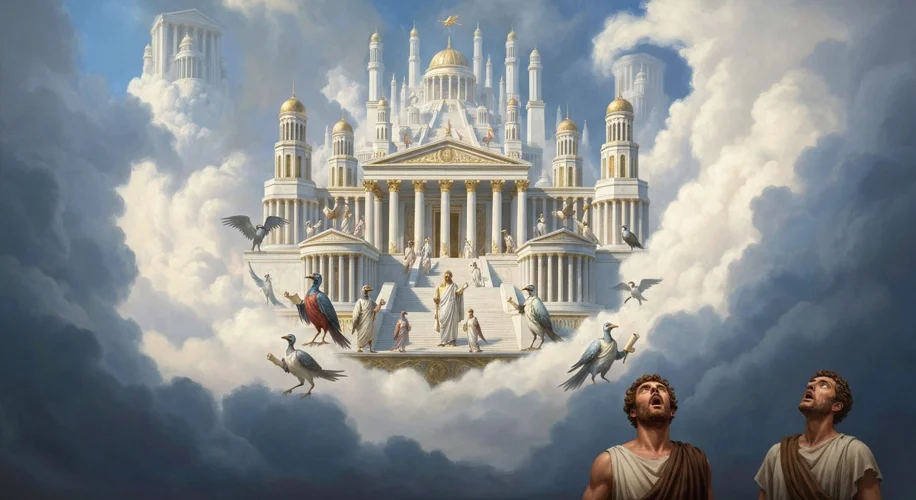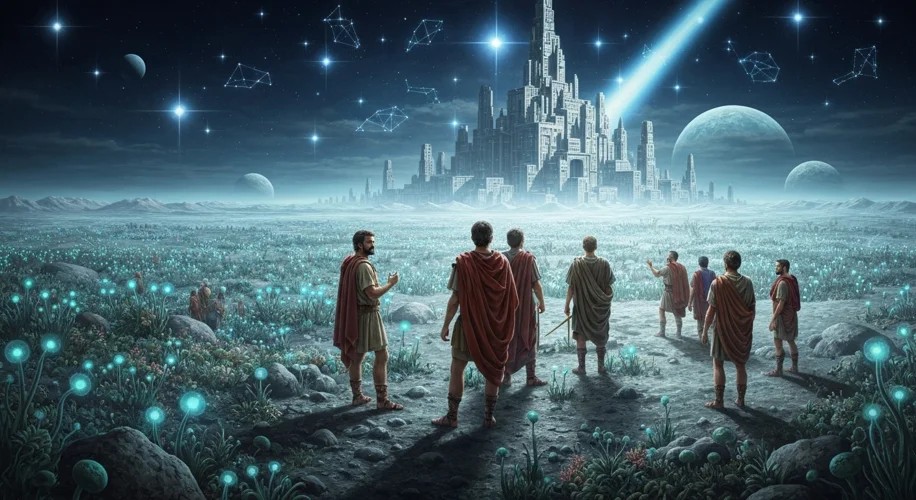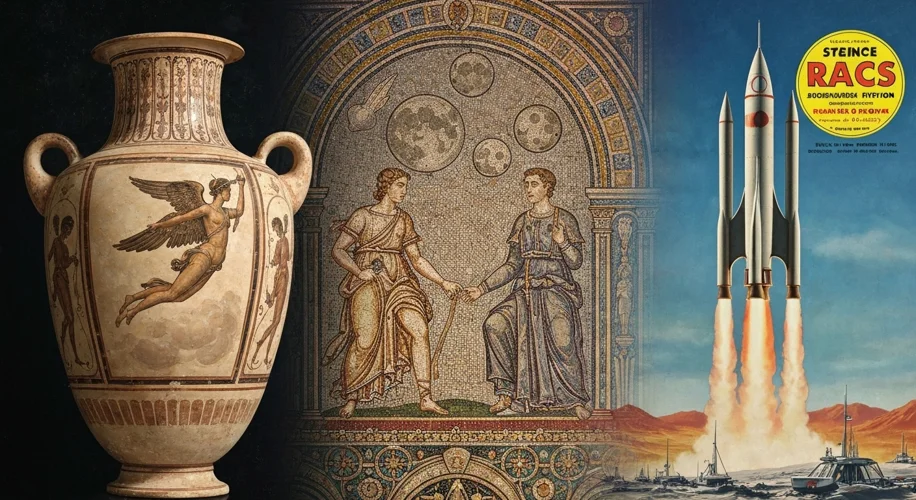Long before the roar of rockets and the glint of lunar dust, humanity gazed at the heavens with a mixture of awe and speculation. We often associate the grand visions of space travel and alien worlds with modern science fiction, but what if I told you that the seeds of these futuristic dreams were sown in the fertile minds of ancient civilizations? Today, we journey back to the time of philosophers and poets, to explore whether the Greeks and Romans, in their own unique ways, also ventured into the realm of speculative fiction, painting pictures of futures and worlds far beyond their own.
Imagine standing in the bustling agora of ancient Athens, the air thick with the scent of olive oil and the murmur of debate. Philosophers like Plato and Aristotle were meticulously dissecting the cosmos, attempting to understand its mechanics and our place within it. But alongside this rigorous intellectual pursuit, a more imaginative current flowed.
One of the earliest and most remarkable examples comes from the Greek playwright Aristophanes. In his satirical comedy The Birds, first performed in 414 BCE, two Athenians, Pisthetaerus and Euelpidēs, are so disillusioned with their city that they decide to seek a new home. Their solution? To fly to the land of the birds, a magnificent city in the clouds called Nephelokokkygia (Cloud Cuckoo Land), built by the birds themselves. This isn’t just a fanciful tale; it’s a meticulously crafted world with its own society, economy, and even a bureaucracy, all constructed in the sky, literally above the human world.

This fantastical city isn’t merely a backdrop; it’s a commentary on human ambition and the desire for a utopian existence, a common theme that resonates even today in our science fiction narratives. Aristophanes, through humor and satire, conjures a world that is both absurd and strangely plausible within its own fantastical logic. The birds, after all, were often seen as creatures connected to the divine or possessing knowledge beyond human grasp.
But the ancient fascination with other worlds didn’t stop at airborne metropolises. The Roman author Lucian of Samosata, writing in the 2nd century CE, provides us with even more direct forerunners to modern space opera. In his work A True Story (which he ironically claimed was entirely false, a clever meta-fictional device), Lucian describes voyages to the Moon and the Sun.
His protagonists, Lycinus and Chandias, set sail on a ship that is caught by a waterspout and carried into the heavens. They land on the Moon, where they encounter lunar inhabitants – beings with three eyes, arms that emerge from their chests, and distinctive reproductive organs. The Moon is depicted as a world with its own political landscape, engaged in a war with the Sun, whose inhabitants are described as being made of light. They even have advanced technology, like ships with sails made of spiderwebs and carrying supplies of milk.

Lucian’s work is particularly striking for its detailed descriptions and imaginative scope. He wasn’t just hinting at the possibility of other worlds; he was populating them with alien life, detailing their societies, and even their interplanetary conflicts. His narratives, while often humorous and satirical, tapped into a deep-seated human curiosity about what lies beyond our terrestrial sphere.
What drove these ancient authors to such flights of fancy? It’s likely a confluence of factors. Philosophically, Greek thinkers were already exploring abstract concepts and the nature of reality. The idea of worlds beyond our own, perhaps perfect or flawed reflections of our own, wasn’t entirely alien to their philosophical frameworks. Plato’s concept of the Forms, for instance, suggested a more perfect, ethereal reality, which could easily translate into imaginative explorations of other realms.
Culturally, the ancient world was filled with myths and legends of gods, heroes, and otherworldly beings who often descended to Earth or inhabited realms beyond human sight. These stories provided a fertile ground for extending the imagination. If gods could travel between worlds, why not humans? And if the gods had powers, could humans, through ingenuity or divine favor, replicate some of those feats?
These ancient tales, from Aristophanes’ sky-city to Lucian’s lunar voyages, are more than just curious footnotes in literary history. They represent a crucial evolutionary step in human storytelling, demonstrating an early capacity to imagine futures and realities detached from immediate experience. They reveal a persistent human desire to explore the unknown, to question the boundaries of our existence, and to dream of what might be, even when the technology to achieve those dreams was millennia away.
So, the next time you lose yourself in a modern science fiction epic of interstellar travel or alien encounters, remember that the impulse to explore these vast, uncharted territories began not with a rocket, but with a story, a philosophical question, and a gaze directed toward the stars, as ancient as humanity itself.


